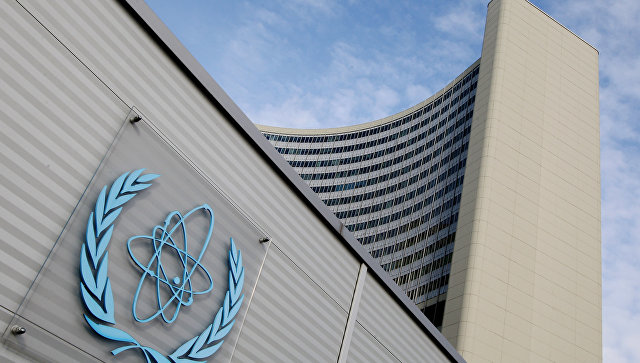
The IAEA and the Russian Federation today signed a transit agreement for the transport of low enriched uranium (LEU) and equipment through Russian territory to and from the IAEA LEU Bank, which is being established in Kazakhstan.
Following the signature of the agreement with Sergey Kiriyenko, Director General of Russia’s State Atomic Energy Corporation, ROSATOM, IAEA Director General Yukiya Amano also met with Russian President Vladimir Putin and Foreign Minister Sergei Lavrov. Mr Amano praised the strong partnership between the IAEA and Russia, and commended Russia for its firm support of the IAEA’s work. They also discussed the status of the nuclear negotiations between Iran and the group of six countries, and the ongoing implementation of IAEA safeguards in Iran.
Speaking earlier at the St Petersburg International Economic Forum, Mr Amano thanked Russia for its strong support for the IAEA LEU Bank, including the speedy manner in which the agreement was finalized. Under the agreement, Russia will ensure the safe and secure transit of IAEA LEU and equipment. The IAEA Board of Governors last week approved it for signature, together with the Host State Agreement between the Agency and Kazakhstan.
The IAEA LEU Bank will be a reserve of LEU as a supply of last resort for Member States in case they cannot obtain LEU on the global commercial market, through State-to-State arrangements, or through any other means. LEU is used to make the fuel that powers most nuclear reactors around the world.
“The LEU Bank is one of a number of assurance of supply mechanisms intended to give countries confidence that they will be able to obtain fuel for their nuclear reactors if there is some unforeseen non-commercial disruption to existing fuel supply arrangements,” Mr Amano said.
The role of nuclear power
In his statement to the St. Petersburg International Economic Forum, Mr Amano also said that many countries continue to see an important role for nuclear power as part of their energy mix. They believe that nuclear power can help to improve energy security, mitigate the effects of climate change, and make their economies more competitive.
“Climate change considerations are also important for many countries that are thinking about the introduction of nuclear power. In the last 50 years, the use of nuclear power has undoubtedly led to a substantial reduction in the amount of greenhouse gases that would otherwise have been emitted,” Mr Amano said.
Unlike renewables, nuclear can also deliver the steady supply of baseload electricity needed to power a modern economy, he said.
Mr Amano also spoke about the impact of the 2011 Fukushima Daiichi accident and said the valuable lessons learnt have led to worldwide improvements in nuclear safety. Nuclear power plant operators, nuclear regulators and governments must demonstrate an unshakeable commitment to the principle of “safety first” to prevent such accidents. He highlighted the importance of embracing a culture of nuclear safety and security.
Later during his visit to Russia, Mr Amano will visit the Angarsk Electrolysis Chemical Combine and the International Uranium Enrichment Center (IUEC) in the Irkutsk region. IUEC is the site of another source of LEU supply for Member States approved by the IAEA in 2009, as a guaranteed physical reserve of LEU maintained by the Russian Federation.
“That reserve, which contains 120 tonnes of LEU, is fully funded by the Russian Federation. It serves as a back-up supplier to IAEA Member States which face non-commercial disruptions to their supplies of nuclear reactor fuel,” Mr Amano said. “I look forward to visiting Angarsk on Saturday.”
